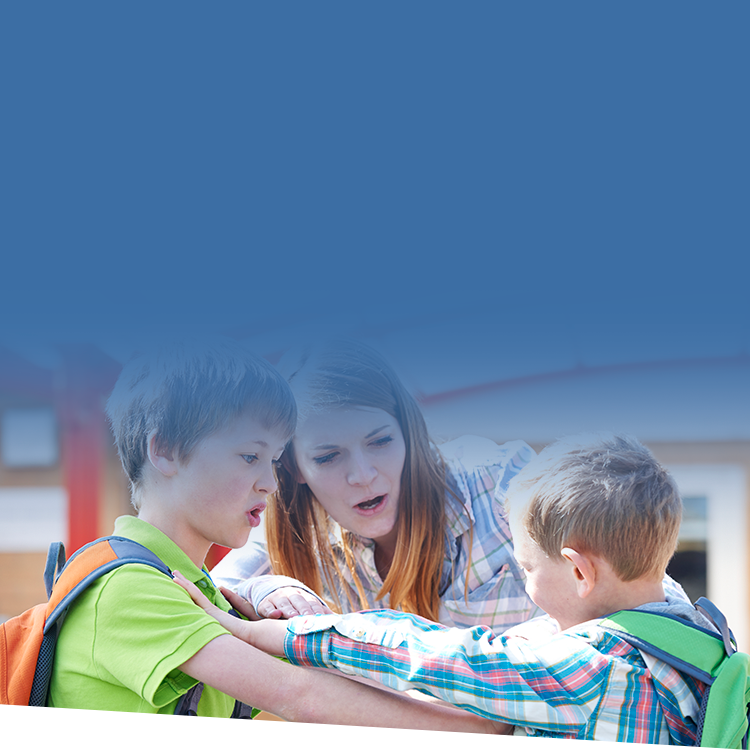Resilience—the ability of an individual or a community to withstand, to adapt, and to recover quickly from stress and shock—is a dynamic and developmental process that strengthens over time, and is shaped and built by social determinants—including experiences, opportunities, and relationships—that develop capabilities needed to withstand adversity or disadvantage, and that lead to improved tenacity, self-motivation, problem-solving, and self- image.
Developing a social-emotional program at your school has never been more important. Students face adversity at every turn—in academics, friendships, and emotional distress. Social-emotional programs at schools—which have a significant impact on attitudes, behaviors, and academic achievement—can build self-awareness, self-management, social awareness, and responsible decision-making.
These skills matter in the development of resilience not only because they enable students to negotiate challenges effectively, but because they promote healthy friendships, which in turn support children’s well-being. For this reason, in addition to robust social-emotional learning programs, schools should take action to promote and facilitate friendships. What better place to do this than on the school playground?
Squash the Squabble
Any teacher or staff member who has been on the playground during recess has witnessed a simple squabble escalate into a raging conflict. One of the most important skills for children to learn is how to resolve conflict effectively—and calmly.
Conflict resolution is a skill students can learn and strengthen through practice. With coaching, they can come to understand personal differences and develop resilience. This is because conflict resolution is an opportunity to learn from challenging situations.
Mediation or conflict coaching helps children better understand differences and develop the ability to consider different perspectives. Understanding a situation and recognizing what is within and beyond their control instills the confidence students need to resolve conflicts.
Focus on Communication
Communication and listening skills are key, but so are acknowledging, understanding, and managing feelings. All these skills help students learn how to choose a positive response, rather than being hijacked by emotions. Furthermore, conflict—and the need to manage it—develops leadership proficiencies that not only create healthy relationships, but also sustain positive and productive social climates.
Effective playground management supports the “7 Cs” of youth resilience: competence, confidence, connection, character, contribution, coping, and control.
Students who demonstrate resilience on the playground are likely to learn from problems rather than avoid them. This translates into improved persistence, courage, self-efficacy, and self-determination—which are essential to academic and social success.

Tune in to ask questions related to this Source article or other topics you've encountered lately.
Visit our NEW Community and start posting.
Teach Students to Resolve Conflict Independently
Avoid settling conflicts for children as soon as they occur. Instead, empower them to resolve conflicts independently. This ensures they build the resilience they need to adapt to adversity by eliminating arguments. Consider these strategies to facilitate students’ autonomy on the playground.
- Rock, Paper, Scissors: Use this classic children’s game to resolve common disagreements. Children often argue about whose turn it is on the monkey bars, or about a pitch, a strike, or a ball. Instruct students on the rules for a simple game of Rock, Paper, Scissors so they have a technique for resolving these straightforward conflicts before they escalate.
- Focus on “I” statements: Identifying and naming feelings helps everyone involved avoid becoming defensive—which often leads to escalated conflict. Teach students to use these during moments of conflict, such as “I feel when you.”
This eliminates their instinct to rush immediately to blame, and it facilitates the dialogue necessary for peaceful resolution. Students may initially need coaching to use this strategy, but eventually they internalize and implement it on their own.
- Try a Peace Path: Use this step-by-step example for resolving conflicts. The Peace Path is a conflict-resolution tool that helps students come up with 3rd alternative solutions themselves; it offers insightful steps that shift the focus back to student empowerment by using basic problem-solving principles.
The Peace Path leads students to finish statements or ask questions such as: “What happened?”, “How would you feel?”, and “Brainstorm a solution.” Teach this process to your students and consider painting it on the paths around your school’s playground.
- Mindfulness: Strong emotions—like anger and frustration—can incite negative behaviors, such as yelling or fighting. Teaching children techniques for managing their emotions through mindfulness exercises can help them stay calm during playground conflicts.
Consider using techniques like taking five deep breaths, saying the alphabet under their breath, giving themselves a bear hug, or simply walking away. These tactics help students calm down rather than engaging negatively with their peers.
- Peer coaching: Offer negotiation classes for older students to teach them how to act as conflict coaches on the playground. Assign these student coaches the role of supporting younger students while they attempt to manage their own conflicts. Teach your peer coaches how to listen to all sides and offer strategies to resolve disagreements peacefully.
Results and Rewards
When children realize they have control over their decisions and actions, they are more likely to make choices in ways that allow them to bounce back from life’s difficulties. Successful conflict resolution on the playground provides students with a sense they have autonomy about how to think and act. These choices enhance their sense of competence, character, and connection.
As they navigate disagreements, children acquire the ability to manage stressful situations effectively, and establish the skills that promote feelings of competence. Ultimately, the resilience they develop through conflict resolution promotes success in the classroom—developing the growth mindset and intrinsic motivation needed to persevere through challenges and achieve academic goals.





